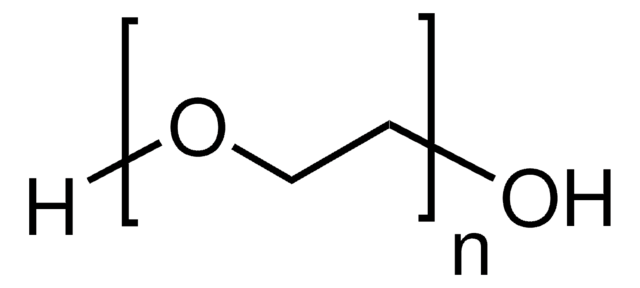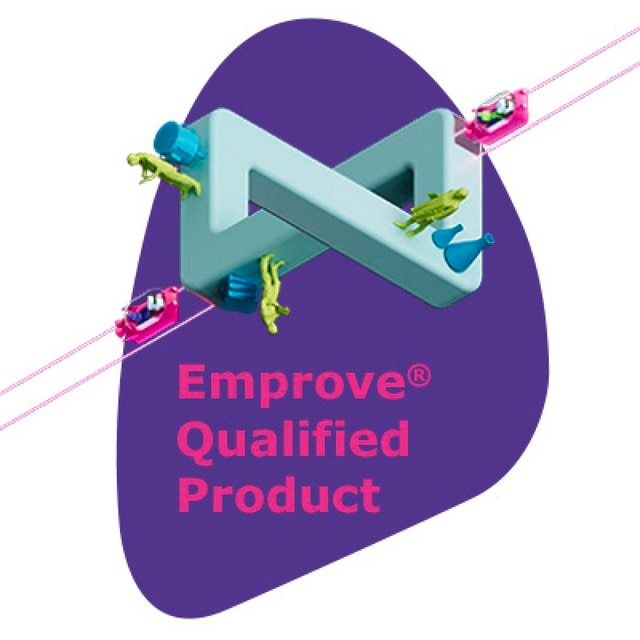8.21881
Polyethylene glycol
10000, for synthesis
Synonym(s):
Poly(ethylene glycol), Polyethylene glycol 10000, Polyglycol, Polyethylene oxide, Polyoxy ethylene, PEG 10000, PEG
About This Item
Recommended Products
vapor pressure
<0.01 hPa ( 20 °C)
Quality Level
form
liquid
autoignition temp.
340 °C
potency
28000 mg/kg LD50, oral (Rat)
>20000 mg/kg LD50, skin (Rabbit)
pH
5-7 (20 °C, 100 g/L in H2O)
kinematic viscosity
500-900 cSt(20 °C)
mp
58-63 °C
transition temp
flash point 265 °C
density
1.2 g/cm3 at 20 °C
bulk density
400‑500 kg/m3
storage temp.
no temp limit
SMILES string
C(CO)O
InChI
1S/C2H6O2/c3-1-2-4/h3-4H,1-2H2
InChI key
LYCAIKOWRPUZTN-UHFFFAOYSA-N
Looking for similar products? Visit Product Comparison Guide
General description
Application
It can also be used as:
- A reactant to synthesize N-PEGylated-thiazolium salt, which is used as an organocatalyst for the benzoin condensation.
- A nonionic dispersive agent in the preparation Nd2Si2O7 ceramic pigment by a co-precipitation method.
Analysis Note
Melting range (upper value): ≤ 64 °C
Hydroxyl value: 9 - 12
Average molecular mass: 9000 - 12500
Identity (IR): passes test
Storage Class
10 - Combustible liquids
wgk_germany
WGK 1
flash_point_f
281.5 °F - closed cup
flash_point_c
138.6 °C - closed cup
Certificates of Analysis (COA)
Search for Certificates of Analysis (COA) by entering the products Lot/Batch Number. Lot and Batch Numbers can be found on a product’s label following the words ‘Lot’ or ‘Batch’.
Already Own This Product?
Find documentation for the products that you have recently purchased in the Document Library.
Customers Also Viewed
Our team of scientists has experience in all areas of research including Life Science, Material Science, Chemical Synthesis, Chromatography, Analytical and many others.
Contact Technical Service
